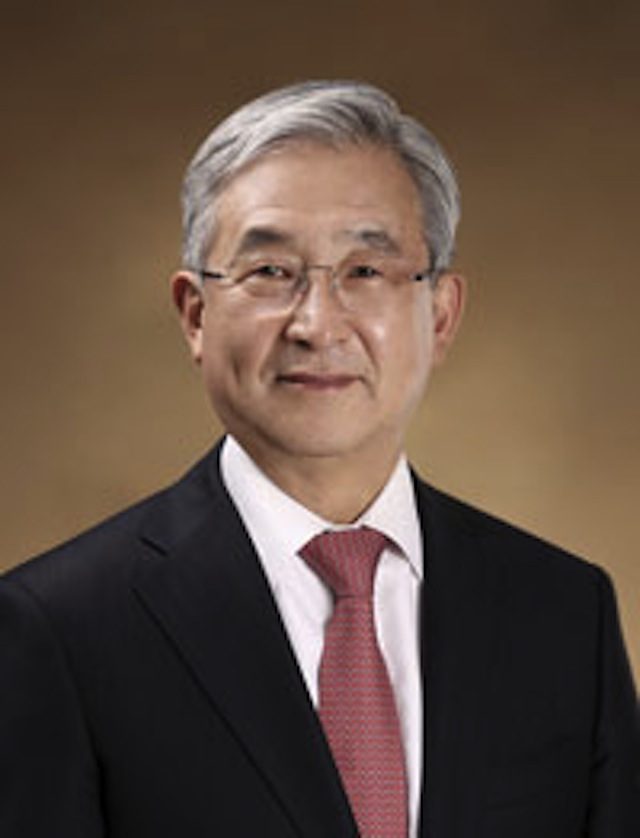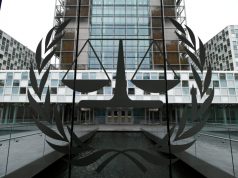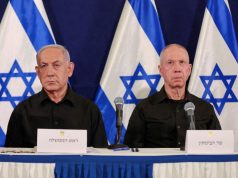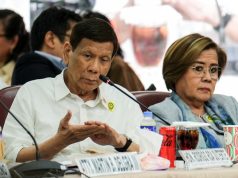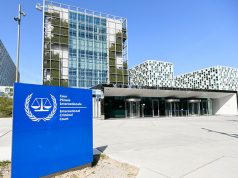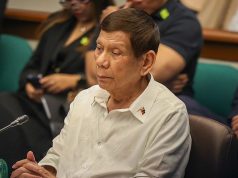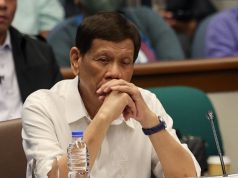MANILA – International Criminal Court (ICC) Assembly of States President O-Gon Kwon has declared he is “ready to fly to Manila to be involved in any dialogue with any authorities” and “to plead with the Philippine people to reconsider” the government’s withdrawal from the ICC, just as Presidential Spokesperson Harry Roque said the ICC won’t get any cooperation from Manila however it proceeds with an announced “preliminary examination.”
Kwon, in an interview with Bloomberg TV Philippines’ “The Big Story” anchor Roby Alampay on Thursday, at times sounded evasive on questions as to how ICC expects to move forward, or if they even have any options, should the Philippines not cooperate, as Malacañang Palace has threatened.
Still, Kwon asserted he is “ready to fly to Manila” as part of the international body’s apparent efforts to win back the Philippine government’s confidence that fair play and due process will underpin the ICC’s actions.
“There are a lot of points that I can discuss with my friends in the Philippines,” Kwon said in “The Big Story” interview.
“With all due respect to Mr. (Harry) Roque and his Excellency President (Rodrigo) Duterte, in my humble opinion there seems to be some kind of misinformation as to the nature of the preliminary examination or complementarity, and the date on which the withdrawal will take effect,” Kwon explained.
He was referring to the earlier announcement by ICC Prosecutor Fatou Bensouda that her office will begin a “preliminary examination” of the Philippine situation in light of complaints about alleged extrajudicial killings, while stressing such “preliminary examination” is not an investigation.
Kwon clarified that a preliminary examination “does not mean that the court has decided to have the jurisdiction over the situation of Philippines.”
He added: “Nor does it mean that it is, that the court has decided guilt or innocence at all. The pre-trial examination is a process in which the prosecutor considers whether there is (enough) information to proceed with the investigation, proper investigation. In such a case, still she needs authorization from the pre-trial chamber that consists of three judges,” he pointed out.
He also noted that the principle of complementarity is “one of the most important pillars of the ICC.”
“If the national domestic jurisdiction is able and willing to prosecute and address the alleged crime, there is no room for the International Criminal Court to intervene. So if the alleged crime is genuinely addressed by the national jurisdiction, then the ICC is not, will not proceed with [investigating] the crimes anymore,” Kwon explained.
Asked if there can be an examination if the Philippine government refuses to cooperate, Kwon replied, “There is no time limit on the part of the preliminary examination, so I take it the prosecutor will endeavor in trying to get the sufficient information to make her decision whether or not to proceed with the information.”
As the Philippines has a year for its withdrawal from the ICC to take effect, Kwon said there is ample time for the Filipino people to reconsider.
If an examination were to proceed, Kwon said that given that the Philippines’ withdrawal will take effect a year after the notification to the United Nations, “if by any chance the prosecutor is able to get the authorization to proceed with the investigation in a year’s time, then this withdrawal has no effect at all.”
Watch the video of the interview below.
ICJ REMINDS DUTERTE
Just a few days ago, the International Commission of Jurists (ICJ), a non-governmental organization composed of about 60 eminent jurists from around the world, reminded Duterte of his duty to investigate and address the allegations of extrajudicial killings.
However, given that “there is no indication so far of a genuine, thorough, prompt, impartial, and independent investigations of these crimes in the Philippines,” and that the country’s authorities are apparently unwilling to attempt such probes, ICJ Secretary General Sam Zarifi said in a letter to Duterte dated March 19, 2018, the ICC “can and should assert jurisdiction to undertake its own investigation”.
In a press release, Zarifi noted that Duterte “has very publicly stated that he will block investigations into the conduct of his government and its role in the killings of thousands of people; he has insulted and threatened United Nations officials; he has bullied and belittled domestic critics and civil society.”
“He’s now trying to avoid accountability under international law, too,” Zarifi added.
Last week, Duterte instructed Executive Secretary Salvador Medialdea to “give written notice to the United Nations Secretary-General regarding the country’s withdrawal as a State Party to the Rome Statute creating the ICC,” according to Presidential Spokesperson Harry Roque.
The ICJ called this a “hasty and ill-conceived decision” based on what Zarifi said was “a litany of poorly thought out pseudo-legal arguments and self-serving statements that focus on President Duterte’s fear and resentment at facing questions for the horrific campaign of extrajudicial executions that his government has explicitly condoned.”
The ICJ pointed out that Article 7 of the Rome Statute “expressly provides that certain unlawful killings, when committed as part of a systematic or widespread attack on a civilian population, fall within the jurisdiction of the ICC.”
Zarifi explained that withdrawal from the ICC “will not prevent the (ICC) prosecutor from conducting a preliminary examination because the acts complained of were committed prior to the date when the withdrawal becomes effective.”
He further noted that if the Philippine government cooperated with the preliminary examination, it would have the opportunity to present evidence to support its claims that “police and other state actors were acting lawfully in the conduct of their duties or in self-defense”.
“And even if the preliminary examination were to lead to a full investigation and subsequently to actual indictments, any evidence in support of the charges would have to be rigorously tested in a fair trial, as would any defenses,” Zarifi added.
He reiterated that the best way for the Duterte administration “to defend [itself] against allegations would be to promptly order the investigation of all serious allegations, and cooperate with the preliminary investigation.”
Zarifi urged Duterte to direct the Department of Justice to investigate these EJKs in accordance with international human rights law and standards.
At the same time, Zarifi said it was open to assisting the government in complying with its “obligations under international criminal law and international human rights law, specifically on the obligation to undertake prompt, independent, and effective investigations” into alleged EJKs.
“We look forward to engaging with your administration to further human rights and the rule of law in the Philippines,” Zarifi wrote.

